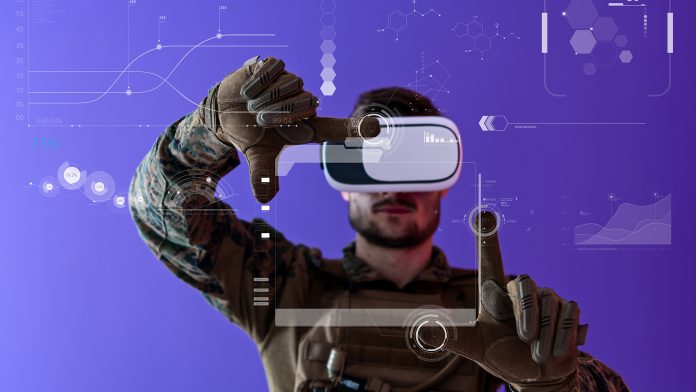Kirsty Biddiscombe, Head of AI, ML & Analytics at NetApp UK&I, explores how the UK can implement AI in the defence industry.
Artificial Intelligence (AI) is reshaping the defence industry. Whether it is tackling the rise of disinformation, intelligence-based reconnaissance or transforming logistics, AI is changing the way the military operates across land, air, water, and cyberspace.
Last year the UK Government published the Defence Artificial Intelligence Strategy, which formed a key part of the government’s National AI Strategy. Its purpose is to strengthen the UK’s defence and security ecosystem, adopt and exploit AI at pace, and scale for advantage and transform defence into an AI-ready organisation.
But where can the military benefit from AI and how does the UK achieve this?
Applications of AI in the defence industry
There are many examples of AI applications in the defence industry if countries can get it right. As well as the use of AI to launch drones and autonomous ground vehicles, AI plays a vital role in the back-end of the defence industry to enhance military resources.
Firstly, with data processing and research. AI can handle and tackle data acquired from various sources and empower the sector for effective intelligence reconnaissance. For example, using data to identify the location of enemies to help soldiers know where to go.
In addition, AI can be used for surveillance, by analysing data from different sensors and satellites. One example of this is for water ships and submarines, where this technology can be used to detect enemy mines to ensure the military avoids them.

Finally, and perhaps most importantly AI can have a huge impact on predictive maintenance. This not only maximises military resources but keeps units on constant high alert, ready to face any challenge head-on. Advanced data analytics and scanning can be utilised to maintain military equipment in inventory.
It can also predict faults or malfunctions before they occur, saving lives and money. For example, it can be used to detect failures on a faulty aircraft. By catching damage early, AI can save lives before it’s too late.
But the UK defence industry can only harness the power of AI in this way if it focuses on building an AI infrastructure built on strong data foundations. Data is ammunition, and if the sector can effectively manage an ecosystem that focuses on transferring information across various data points in the defence ecosystem – the industry can ensure forces are ready on the battlefield.
Taking AI to the next level
The defence industry must work in co-ordination with the UK Government in order to build an AI infrastructure to support the analytical power required to make rapid, intelligent, and secure decisions. But this isn’t an easy feat.
In a heavily regulated environment, the challenge lies in striking the delicate balance between data movement requirements and compliance obligations.
It requires data infrastructure that can unleash the power of AI throughout the defence industry, helping all the way from scaling to enhancing performance and tackling intricate edge scenarios, all while keeping it secure. It’s a revolution in strategy, where data becomes the most formidable weapon in the arsenal.
With countries across the globe continuing to develop and evolve their AI capabilities for military functions, unleashing AI’s full potential must remain a priority in the UK defence industry.









